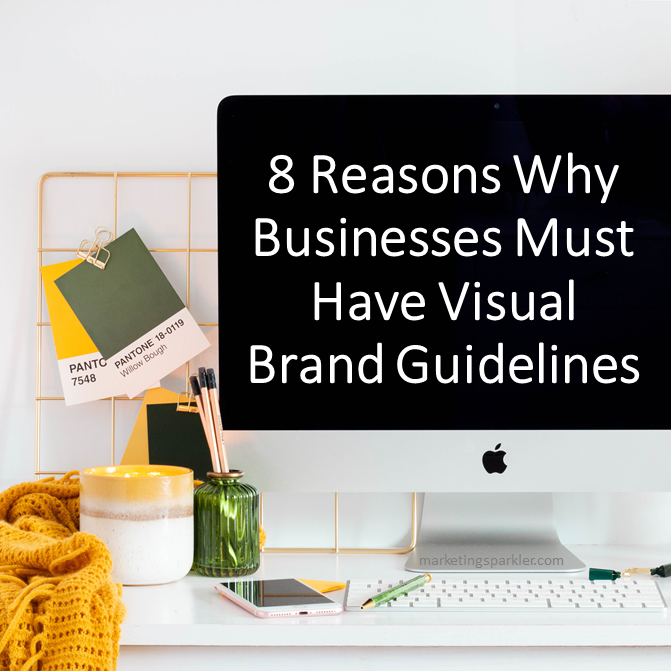Brand guidelines communicate essential things about your business or brand within your organization and with everyone, including your partners and affiliates.
These are a set of tools and instructions on how your branding elements must be used. These guidelines are usually presented in a book format and used by everyone who will use your brand elements for promoting your business, including writers and designers.
No two brands are similar, so the elements contained in your brand guidelines will not be the same as your competitor’s guidelines. Still, there are three common elements that must be included in every brand rulebook. These include:
- Typography – Every guideline must have font sizes, typefaces and families, and the font hierarchy associated with your brand.
- Color palette – These are the colors making up your brand. Avoid using too many colors. Instead, use CMYK and RGB color codes because these options are consistent with most print and web formats.
- Logo design – This is a crucial part of the guideline. It refers to how your logo must be displayed in various formats. This includes the color to be used, size restrictions, and how the logo must be presented in different backgrounds. It should also include details on how your logo should not be displayed.
Other elements that can be included in your visual brand guidelines are imagery, brand tone, symbols, and graphic elements.
Now that you are aware of what should be included in your brand guidelines, you may be questioning its importance.
8 Reasons Why Businesses Must Have Visual Brand Guidelines
Brand guidelines are used as an instrument to ensure brand consistency. They help your corporate brand to work efficiently.
Without a guidebook, your company’s message can change at a certain point because your logo can be used improperly, or the copywriter might use graphic elements instead of the required word mark.
Here are eight compelling reasons to set up your brand guidelines now.
1. Promotes brand consistency
Each time a web user visits your site, receives printed business material, or sees your corporate card, they receive details about your company aside from reading your content. If you have brand guidelines, communicating a consistent brand identity is guaranteed.
Consistency is crucial to make your brand reliable and recognizable. You can successfully build a powerful brand when all the brand elements are used consistently in the correct way.
2. Increases value
Your brand is a crucial asset, so everyone must be aware of how valuable it is. Having a set of brand guidelines will enhance profitability and boost your company’s ability to outperform your competitors.
3. Manages perception
When it comes to managing perceptions of your firm, brand guidelines play a crucial role. Whenever you communicate with employees, suppliers, investors, customers, and the community, establishing and reinforcing a consistent perception of your company is important, and a set of brand guidelines will help you achieve that.
4. Sets rules and standards
Brand guidelines contain rules and standards on how the elements of your brand should be used. It contains acceptable variations in your logo, along with some examples. Also, it emphasizes what is right and wrong in terms of using the brand elements.
5. Demonstrates a relationship
Brand guidelines can be used to demonstrate the relationship between your business and anyone associated with you. Whenever you partner with distributors, you’ll want to share your brand guidelines with them for it to be reflected in the marketing materials.
6. Sends out the same message
Your web designer, content writers, and graphic designers must always be on the same page to ensure that you are sending out a cohesive message to your target audience. And this is only possible if you have a set of brand guidelines.
To make sure that your content, website, and graphics are aligned to convey a message, you must have a brand style guide. Everyone in your organization should be well-versed about it to guarantee that you send the same messages no matter what communication platform you employ.
7. Saves time and effort
Having a set of brand guidelines in place, you don’t have to speak with different teams each time you launch a new marketing campaign. Instead, you can just start them off with the set of brand guidelines that will form the basis of all visuals. In turn, this will save both the time and effort of everyone involved.
8. Prevents confusion
As a business owner, you are aware that you will soon be adding employees as you grow bigger.
Educating each new employee (or contractor) about how your brand should be displayed can be tiresome. To avoid this situation, you must give each employee the brand style guidelines. This way, they are well-informed about how your brand must appear and what must be avoided.
By having a set of brand guidelines in place, your business can work efficiently. It will make your life a lot easier and simplify tasks among your team.
Even if you have superb web design, well-designed graphics, persuasive content, or a well-planned marketing strategy, not setting up brand visual guidelines will hold back business success.
Indeed, a brand style guide is vital for businesses.
If you are starting your own business, now is the best time to create your brand style guidelines. A reputable marketing company can help you get started.
These professionals will help you develop a brand style book that’s easy to read and comprehend, making sure that your brand is presented correctly at all times.
Ciao,
Miss Kemya
This is a guest post by Stuart Harris is the Creative Director at Yellow, a Dubai branding agency, digital partner and advertising company working with progressive businesses to build bold, meaningful brands.
